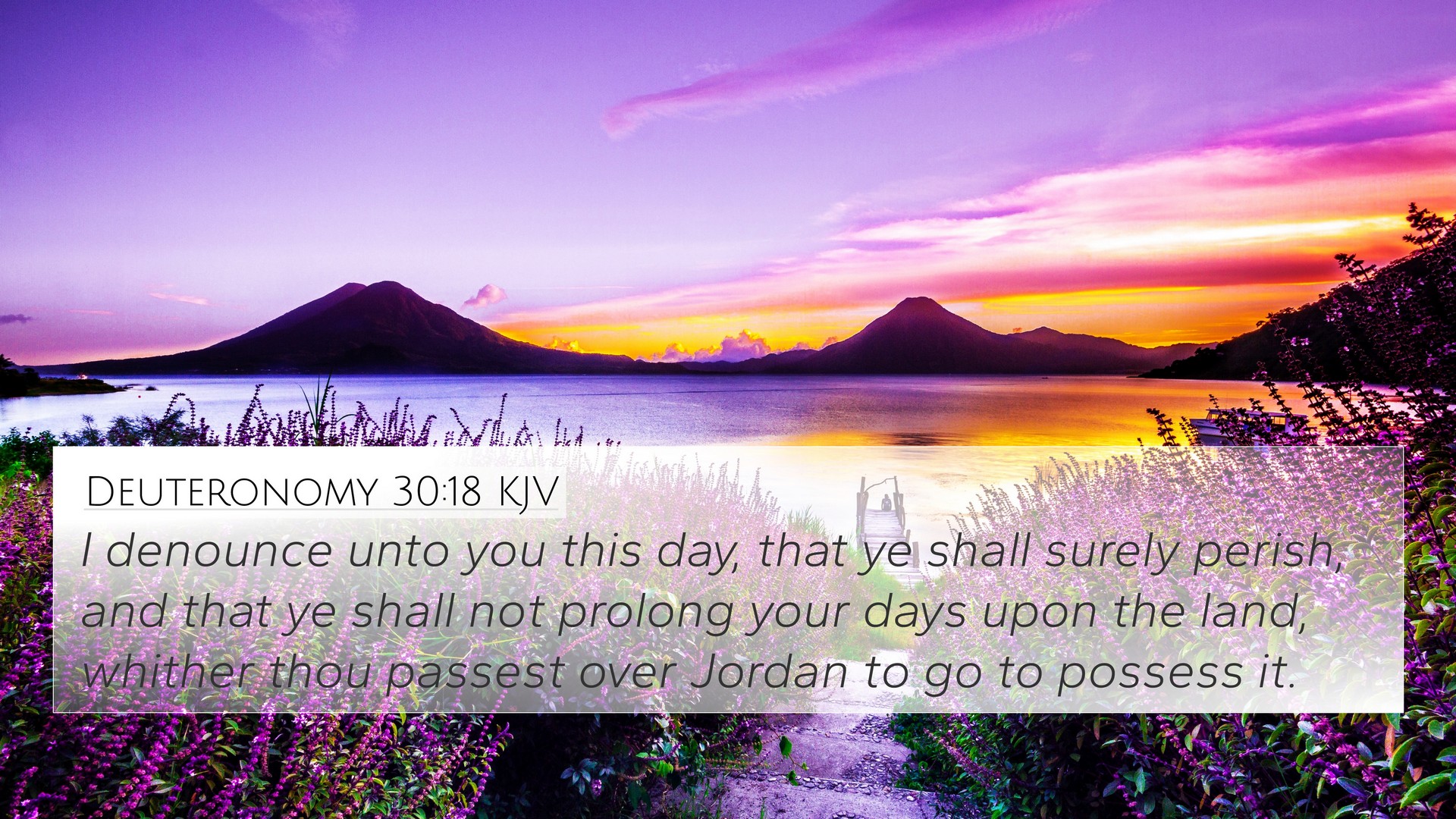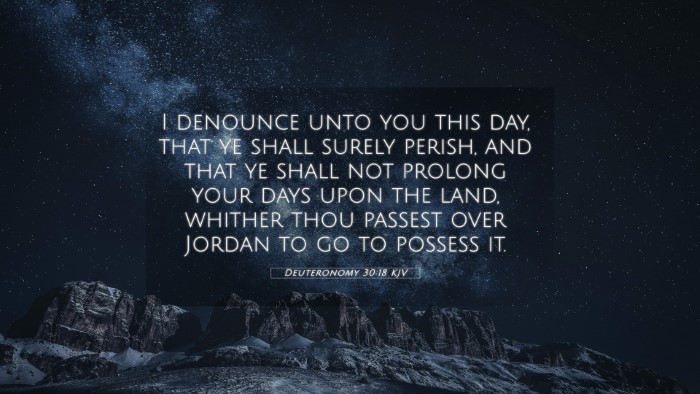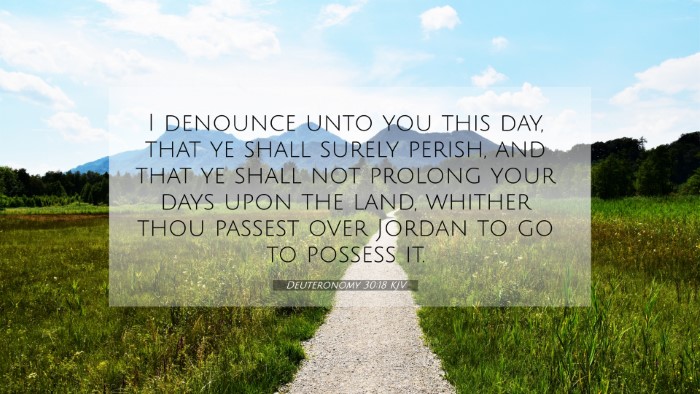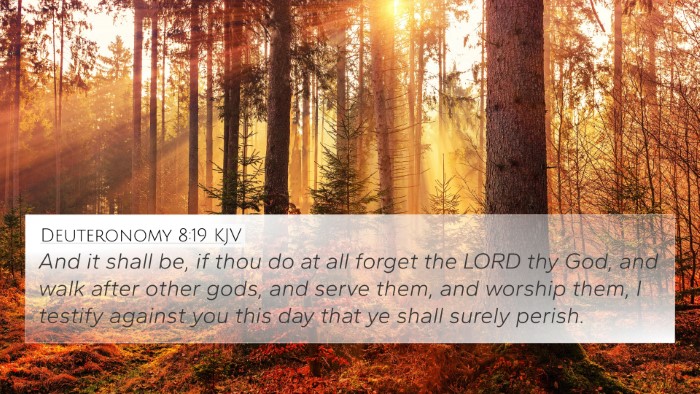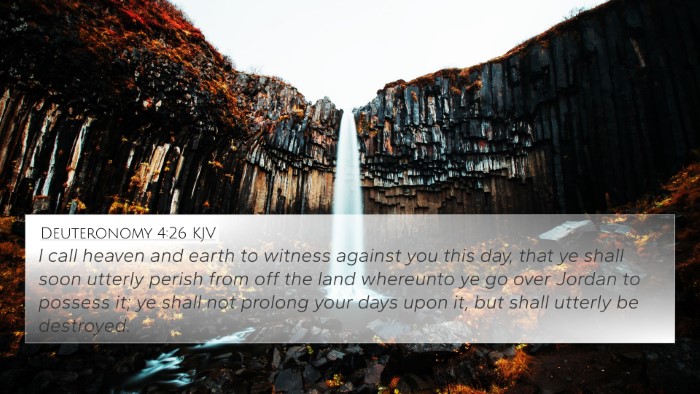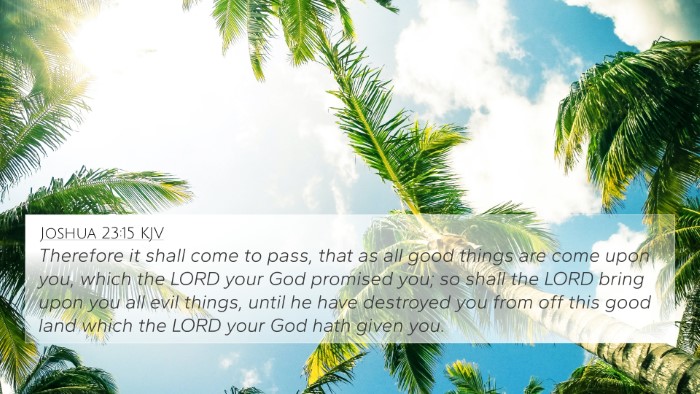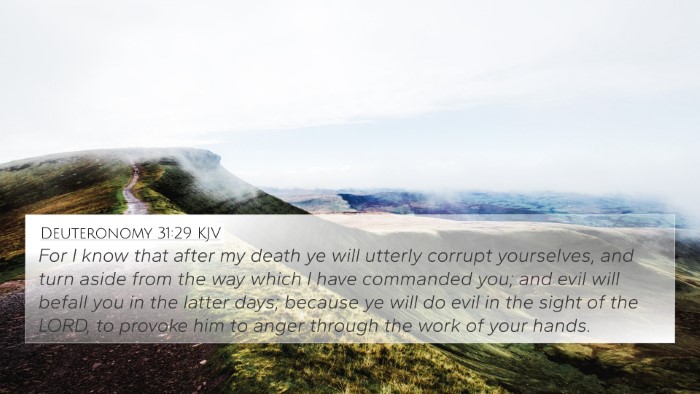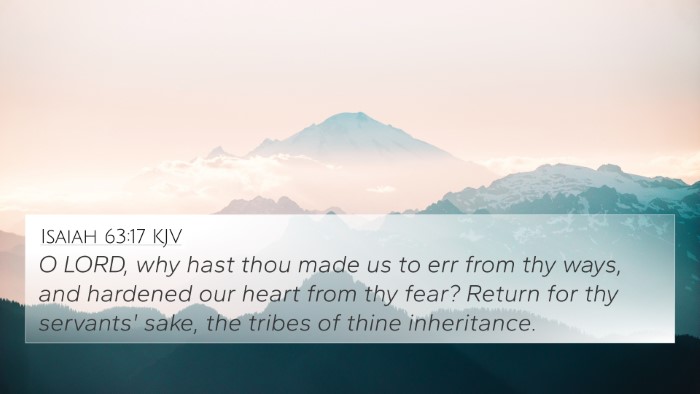Understanding Deuteronomy 30:18
Verse: "I declare to you this day that you will certainly be destroyed. You will not live long in the land you are crossing the Jordan to enter and possess."
Contextual Background
In this verse, Moses emphasizes the weight of the choices that the Israelites face as they prepare to enter the Promised Land. It serves as a warning and an encouragement, encapsulating the theme of blessings versus curses that is present throughout the Book of Deuteronomy.
Summarized Insights from Commentaries
Matthew Henry's Commentary
Matthew Henry notes that this verse serves as a solemn declaration about the consequences of disobedience to God's commands. It highlights the seriousness with which God views the covenant relationship with His people. Henry emphasizes that God desires His people to choose life and blessings rather than death and curses.
Albert Barnes' Notes
Albert Barnes interprets this verse as a pivotal moment for the Israelites. He stresses the responsibility that comes with free will — that the people have the power to choose their path, either aligning with God's will or facing the consequences of rebellion. Barnes underscores the importance of making wise decisions in light of eternity.
Adam Clarke's Commentary
Adam Clarke expands on the themes of choice and consequence. He underscores the significance of this declaration as a part of Moses’ farewell address, reminding the Israelites that their decisions will not only affect them but generations to come. Clarke urges the need for fidelity to God’s covenant to ensure prosperity in the land they are about to inhabit.
Thematic Connections and Bible Verse Cross-References
This verse creates a compelling narrative about the choices faced by God's people. Here are some related themes and cross-references that enhance the understanding of this verse:
- Joshua 24:15 - A choice between serving the Lord or other gods.
- Romans 6:16 - The idea of choosing whom to serve: sin or righteousness.
- Galatians 6:7-8 - Reaping what you sow; consequences of actions.
- 1 Corinthians 3:13 - The day of judgment and how one’s works will be evaluated.
- Deuteronomy 30:19-20 - God sets before the people life and death, urging them to choose life.
- Proverbs 4:23 - The importance of guarding one’s heart, which influences one’s choices.
- Jeremiah 21:8 - Declaring the way of life and way of death to the people.
Comparative Analysis of Choices in the Bible
The theme of choice is deeply embedded throughout scripture. From the decision faced by Adam and Eve in the Garden of Eden to the choices presented to the Israelites, the Bible continually illustrates that decisions lead to significant consequences. Understanding Deuteronomy 30:18 in the light of these connections can reveal deeper theological insights.
Connections Between Bible Verses
Connections can be drawn between Deuteronomy 30:18 and other significant scriptures. For instance:
- Matthew 7:13-14 - Illustrates the narrow versus wide gate, a choice paradigm.
- 1 Kings 18:21 - Elijah’s challenge to the people to choose whom they will serve.
- Revelation 22:17 - The invitation to take the water of life freely reflects God's desire for life over death.
The Impact of Choices and Consequences
Each decision resonates throughout the lives of the people. The repeated calls to obedience are meant to instill an understanding of God's character and the blessings associated with following Him. The consequences outlined in Deuteronomy amplify the importance of these choices.
Tools for Bible Cross-Referencing
If you are studying the connections between Bible verses, consider using tools such as:
- Bible concordance for finding terms and themes.
- Bible cross-reference guide to explore thematic links.
- Cross-reference Bible study resources for in-depth analysis.
- Bible reference resources to help contextualize verses.
Finding Cross-References in the Bible
To find cross-references effectively, scholars often use a structured approach by considering key themes, repeated phrases, and the historical context of the verses in question. This method allows for a nuanced understanding of scripture.
Conclusion
Deuteronomy 30:18 serves as a powerful reminder of the importance of choice in the life of a believer. Through examining this verse alongside related scripture, we gain a richer understanding of the narrative of faith, choice, and consequence in biblical history.
By integrating the themes of this verse with broader biblical contexts, we not only deepen our knowledge but also ensure that we are equipped to make wise decisions that align with God’s will.
